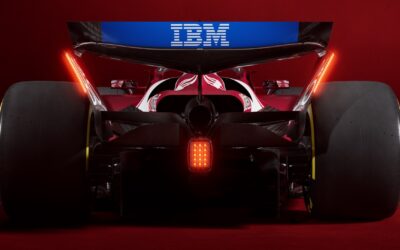Robert Bosch Engineering and Business Solutions (RBEI) launched India’s first internet of things (IoT) garage in Electronic City, Bengaluru, to offer enterprises a full-stack IoT implementation capability. The lab will focus on building technology demonstrators and validating them before they take shape into scalable solutions for smart connected products. The lab will partner with enterprises that want to build connected products. The entire gamut of service from build, develop, prototype and test are offered.
Vijay Ratnaparkhe, President and Managing Director, RBEI said, “The future will see the convergence of embedded, IT and IoT world. An IoT lab such as this will help us become ready for the future and also realize our aspiration of becoming the leading IoT company”.
RBEI is ideally positioned as a system integrator that has in-depth understanding of key IoT capabilities, the competency and prior experience to implement such solutions, and existing partnerships with various eco-system players.
Raghuram Joshi, Sr. General Manager, RBEI said, “IoT is the building block of digital transformation journey taken up by most enterprises. Ability to stitch through solutions across sensor, software and services remains a fundamental capability to be successful in this ecosystem. The IoT Garage will enable us to accelerate this capability building journey and challenge the digital frontiers”.
Bosch is also working with NASSCOM and reaching out to universities to evangelize the connected life. During the inauguration, Sanjeev Malhotra, CEO, NASSCOM Center of
Excellence IoT & AI, said “There is no cookie-cutter solution that will fit all; each company and industry use-case will require a customized approach. Therein lies both the challenge and opportunity that is addressed by this Bosch IoT Garage. We look forward to our collaboration with Bosch, the global leader in innovation with a long-standing presence in Bengaluru, and together driving the understanding, evangelization and adoption of IoT and PoCs in different domains.”
The Internet of Things (IoT) is changing how we live, work, and get around—homes are becoming smarter, factories more productive, and mobility is taking on a fundamentally new form. Following its “Invented for life” ethos, Bosch is constantly developing new ways of applying connectivity that will make all aspects of life easier.
IoT full stack
Smart connected products are built on a framework called the IoT stack. The IoT stack is a conceptual design framework comprised of layers that come together to create a full-fledged IoT solution. The base of the IoT stack consists of the physical and digital parts of the smart connected product. The second layer is made of the sensors, which help gather the data one needs, so that the smart connected product performs in a manner that was envisioned. The third layer is the network communication platform that will connect the sensors in the product hardware to the cloud and then on to the application. For instance, it could be Bluetooth, Radio, Wi-Fi and so on. We now have a “connected” physical product with built-in sensors. The fourth layer is the data layer – how the data collected by the sensor is digested, organized and used. It is imperative for businesses as the data when managed well can create new business models, and unlock new opportunities. The last and top layer of the IoT stack is the application used by the connected product to interface with the user. The UX capabilities come in here; this step is crucial to creating a user-friendly product; it is the difference between success and failure of a product.
RELATED STORIES
Microsoft inaugurates The Garage – India
About RBEI
Robert Bosch Engineering and Business Solutions Private Limited is a 100% owned subsidiary of Robert Bosch GmbH, one of the world’s leading global supplier of technology and services, offering end-to-end Engineering, IT and Business Solutions. With over 20,000 associates, it’s the largest software development center of Bosch, outside Germany, indicating that it’s the Technology Powerhouse of Bosch in India with a global footprint and presence in US, Europe and the Asia Pacific region.
Bosch in India
In India, Bosch is a leading supplier of technology and services in the areas of Mobility Solutions, Industrial Technology, Consumer Goods, and Energy and Building Technology. Additionally, Bosch has in India the largest development center outside Germany, for end to end engineering and technology solutions. The Bosch Group operates in India through twelve companies, viz, Bosch Limited, Bosch Chassis Systems India Private Limited, Bosch Rexroth (India) Private Limited, Robert Bosch Engineering and Business Solutions Private Limited, Bosch Automotive Electronics India Private Limited, Bosch Electrical Drives India Private Limited, BSH Home Appliances Private Limited, ETAS Automotive India Private Limited, Robert Bosch Automotive Steering Private Limited, Automobility Services and Solutions Private Limited, Newtech Filter India Private Limited and Mivin Engg.Technologies Private Limited. In India, Bosch set-up its manufacturing operation in 1951, which has grown over the years to include 18 manufacturing sites, and seven development and application centers. Bosch Group in India employs over 31,000 associates and generated consolidated revenue of about ₨.21,450 crores* (2.66 billion euros) in 2018 of which ₨. 15,824 crores*(1.96 billion euros) from third party. The Group in India has close to 18,000 research and development associates.
In India, Bosch Limited is the flagship company of the Bosch Group. It earned revenue of over ₨. 12,460 crores (1.54 billion euros) in 2018. Additional information can be accessed at www.bosch.in









